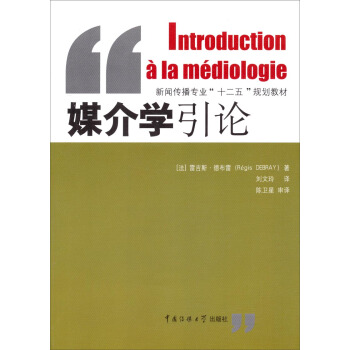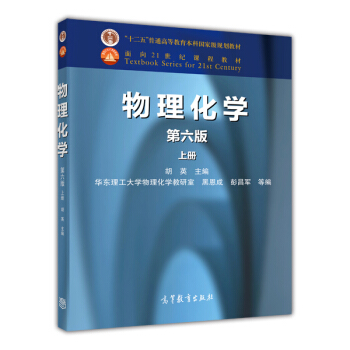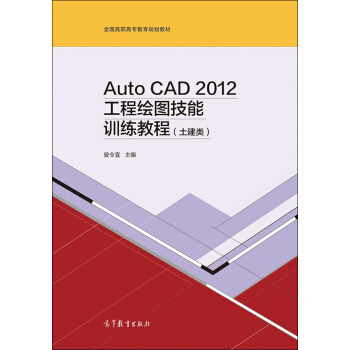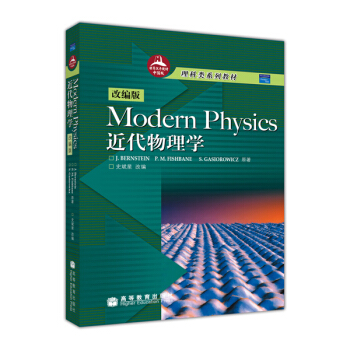

具体描述
内容简介
《Modern Physics近代物理学(改编版)》的原版本内容丰富,资料详实,涉及了物理学领域的新成果和研究课题,在国外被许多外院校指定或推荐作为学生作为近代物理学的主要参考书,具有比较大的影响。本书根据国内教学实际,删去了原版第一篇“狭义相对论”部分,保留了“量子力学”、“物理应用”和“物理前沿”的大部分内容。《Modern Physics近代物理学(改编版)》详细阐述了量子力学发展的历程和取得的成就,涉及复杂原子与分子、统计物理、原子辐射与激光、导体、半导体与超导体、原子核等内容,以及基本粒子物理等一些前沿科研领域。本书可供普通高等学校理科物理类专业作为双语教学教材使用,也可供其他专业和社会读者参考。
作者简介
Jeremy Bernstein,Jeremy Bernstein has had a dual career in physics and writing. He was on the staff of the New Yorker from 1963 to 1993 and was a Professor of Physics at the Stevens Institute of Technology from 1968 until his retirement in 1993, when he became Professor emeritus. He has won several awards for his writing about science and mountain travel. He has also published widely in both technical and non-techni-cal journals. Some of his recent books are: An Introduction to Cosmology, Albert Einstein and the Frontiers of Physics, A Theory for Everything, In the Himalayas, and Dawning of the Raj. He has held visiting appointments at The Rockefeller University,The University of Islamabad, The Ecole Polytechnique, CERN laboratory Princeton University, and Oxford. This photograph of Jeremy was taken on a bicycle trip in northern California. The thumb, which is on the grounds of the Clos Pegase art gallery and winery in Calistoga, was the work of the French artist Cesar Baldachini.Bernstein has bicycled in many countries including Bali and Crete. He makes his home in New York City and Aspen, Colorado.内页插图
目录
About the AuthorsPreface i
1 A Review
1-1 Newton's Laws
1-2 Work, Energy, and the Conservation of Energy
1-3 Rotations and the Center of Mass
1-4 Elastic Media and Waves
1-5 Thermal Phenomena
1-6 The Atomic Structure of Matter
1-7 Electricity and Magnetism
1-8 Electromagnetic Waves and Light Conclusion
PART 1 Quantum Mechanics
2 Waves As Particles and Particles As Waves
2-1 The Nature of Photons
2-2 The Photoelectric Effect
2-3 The Compton Effect
2-4 Blackbody Radiation
2-5 Conceptual Consequences of Light As Particles
2-6 Matter Waves and Their Detection
2-7 Conceptual Consequences of Particles As Waves
Summary
Questions
Problems
3 Atoms and the Bohr Model
3-1 The Behavior and Structure of Atoms
3-2 The Bohr Atom
3-3 Application of Bohr's Ideas to Other Systems
3-4 The Correspondence Principle
Summary
Questions
Problems
4 The Schr6dinger Equation
4-1 Wave Functions and Probabilities
……
PART 2 Applications
Appendix A Tables
Appendix B A Mathematical Tool Chest
精彩书摘
What is true for hydrogen is in fact true for all radiation emitted or absorbed by individual atoms or molecules. This radiation comes in discrete frequencies that are so thoroughly charac- teristic of the atoms or molecules in question that they in effect form a fingerprint. Accordingl~ there is an important application in:which the measurement of the frequencies emitted or absorbed by a material allows us to identify components that are present in the material,even in very small amounts.Let us turn now from questions of discrete frequencies to questions of atomic structure. InSection 1——6,we described Rutherford's classical experiments. These experiments established theexistence of an atom that resembles a miniature .solar system. But just how close is this resem-blance? Several observations reveal that the atom behaves very differently from an electric equiv-alent of a mechanical solar system and that Newtonian physics is very far from providing anexplanation of atomic structure. We expand on two such observations that we briefly mentionedin Section 1-6.
When classical electric charges accelerate,they radiate, losing energy in the process. A classical electron in orbit about a nucleus undergoes acceleration,and as it radiates and loses energy, it will spiral into the nucleus. A classical calculation shows that the electron should be absorbed into the nucleus in only 10-10 s!
A classical picture cannot explain why all atoms of an element are the same,since,in the classi- cal planetary picture,orbital energies,for example, depend on the initial conditions and can vary by arbitrarily small amounts. This classical variability is contradicted by empirical fits like those described by Eq.(3-1),which were interpreted by Ritz as being due.to differencesin what he called terms,but which we shall see are associated with energies that can have only distinct,discrete values.
……
前言/序言
Knowledge of the revolutions of 20th-century physics is an indispensable part of the training of any engineer and phYsical scientist. That is because viffually all of today a tecnology is based, at least in part, on this knowledge. The basic subject material of what is called mod- ern physics is very nearly 100 years old,so that it is hardly mOdem at at all. Yet just as Newton'slaws, today 300 years old, Maxwell's equations, today nearly 150 yeats old,and the laws of clasica! sta- tistical physics,more than 100 years old,remain applicable and essential in their respective domains of physical law,so too do the two major developments of the first half of this century:relativity and quantum mechanics. These fundamental subjects underlie a vast scope of application that contin- ues its inventive course today Moreover,research on fundamental physics has not stopped with rela- tivity and quantum mechanics,and working scientists still face questions as interesting as any that have been answered in the past.Both relativity and quantum mechanics require the studert to make difficult changes inhow he or she thinks the physical world works. The subjects violate prejudices that have been built up by everyday experience. For this reason, precision and clarity of explanation are,for us,the first and most important part of the material. We have made every effor to avoid the “it can be shown” approach and to present modern physics in a way that makes its interconnectedness,as well as its connection to classical physics,evident.
Throughout this text, we have built in a historical approach——a discussion of how a Subject developed and the thinking that led to its maturation. Often this historical perspective is inter- woven with the material; at other times it would interrupt an efficient and compact presentation, and then we present it on the side, asit were. We feel that t~ approach is useful that it stress- es that the roots of the revolutionary advances lie in experiment; it also makes the text ore fun to read.
用户评价
在我接触《近代物理学(改编版)》之前,我对近代物理学的印象,无非是那些晦涩难懂的公式和充满哲学意味的思考。我总觉得,要理解这些,必须拥有过人的数学天赋和深厚的哲学功底。然而,这本书却像一阵清风,吹散了我心中的迷雾,让我以一种全新的视角,去审视和理解这个奇妙的物理世界。作者的叙述,不是冰冷的知识灌输,而是一场充满魅力的思想对话。 在讲解量子力学的开端时,作者并没有急于引入复杂的数学模型,而是从“经典物理学为什么会失灵”这个根本性问题入手。他详细描述了黑体辐射和光电效应等实验现象,以及经典理论在解释这些现象时的窘境。我感觉自己就像是亲身经历了那个时代的物理学家们,在面对这些“不解之谜”时的困惑与探索。这种“追本溯源”的叙述方式,让我对即将到来的量子理论有了更深的理解。 让我最为惊艳的,是作者在阐述相对论时,不仅仅是介绍了“时间膨胀”和“长度收缩”这些结论,而是深入探讨了“时空观”的革命性转变。他用了一个非常生动形象的比喻:想象一张被重物压弯的床垫,一个小球滚过时,它的轨迹会受到弯曲的影响。这就像是引力,它不是一种“力”在起作用,而是质量对时空的弯曲。这个类比,让我对引力的本质有了全新的理解,不再将其视为一种神秘的“力量”。 本书在科学史的讲述上也显得格外用心。作者将伟大的物理学家们的生平事迹,巧妙地穿插在理论的讲解之中。我们能看到普朗克的“被迫”量子化,爱因斯坦的“光子”设想,以及玻尔模型对原子结构的解释。这些“人物故事”让科学理论不再是冰冷的公式,而是充满了人性与智慧的光辉。我感觉自己仿佛置身于那个伟大的时代,与那些伟大的头脑一同思考。 而且,作者在解释那些“反直觉”的物理概念时,非常善于运用“类比”和“思想实验”。比如,在讲解“波粒二象性”时,他会让你想象一个既像水波一样扩散,又像粒子一样精确落点的物体。这种“亦此亦彼”的描述,虽然抽象,却精准地概括了微观粒子的奇异行为。我感觉自己仿佛是在用一种全新的视角,去观察和理解世界。 本书在将抽象的物理理论与现实世界紧密联系方面,也做得非常出色。作者并没有让读者感觉物理学只存在于书本和实验室,而是着重强调了它如何支撑起我们现代科技的发展。比如,在讲解半导体物理时,他详细介绍了晶体管的发明如何革命性地改变了电子产业,以及我们今天所使用的智能手机、电脑等都离不开这些基础的物理原理。这种“理论的温度”让我看到了物理学的实用价值。 让我惊喜的是,作者在探讨一些物理学的“前沿”问题时,也做得相当引人入胜。比如,他用非常生动的语言,介绍了关于宇宙大爆炸的证据,以及暗物质和暗能量的神秘性质。他并没有给出确切的答案,而是鼓励读者去思考和探索,这种“开放式”的引导,极大地激发了我对宇宙未知的兴趣。 本书在内容安排上也做到了非常清晰和系统。它从相对论和量子力学这两个近代物理学的核心理论出发,逐步深入到原子物理、核物理,直至粒子物理。章节之间的过渡非常自然,知识体系的构建也非常完整。我感觉自己就像是在按照一份详细的“物理学地图”,一步一步地探索着近代物理学的广阔天地。 而且,本书的配图也十分精美,并且与文字内容紧密结合。我尤其喜欢那些描绘原子结构、粒子碰撞的示意图,以及展示宇宙星系的宏伟图像。这些视觉元素,极大地增强了我的阅读体验,让我对书中的概念有了更深刻的理解。 总而言之,《近代物理学(改编版)》这本书,是一次非常成功的科普尝试。它以一种前所未有的生动、有趣、且富有启发性的方式,将那些曾经令人生畏的近代物理学概念,变得清晰而迷人。它让我不再畏惧物理学,反而对探索科学世界的奇妙之旅充满了热爱。我强烈向所有对科学世界充满好奇的朋友们推荐这本书,它绝对会带给你一场难忘的智力盛宴。
评分这本《近代物理学(改编版)》绝对是我最近阅读过最令人振奋的物理学入门读物之一。我一直对物理学抱有浓厚的兴趣,但总是被那些冗长、晦涩的教科书吓退。这本书的出现,简直是为我量身定制的。作者在保留了近代物理核心概念的严谨性的同时,用一种极其生动、易于理解的方式进行了阐述。例如,在讲解量子力学的基础时,作者并没有直接抛出那些复杂的数学公式,而是先从经典的“双缝干涉实验”入手,用一个个形象的比喻,比如“粒子像个调皮的孩子,一会儿表现得像个球,一会儿又像水波一样散开”,成功地勾勒出了量子世界的奇异图景。这种“润物细无声”的讲解方式,让我深刻地体会到了量子叠加和波粒二象性的不可思议,甚至产生了一种想要亲手做实验验证一番的冲动。 再比如,书中对相对论的介绍,也做到了化繁为简。我曾经尝试阅读过一些关于相对论的书籍,但总觉得时空弯曲、时间膨胀这些概念离我太遥远,难以 grasp。然而,这本书通过一系列富有想象力的 Gedankenexperiment(思想实验),比如“高速飞行的火车上的乘客看到的现象”以及“黑洞附近的时间流逝”,将这些抽象的概念变得触手可及。作者并没有回避相对论的数学框架,但巧妙地将其融入到对物理现象的描述中,让读者在理解物理意义的同时,也能对背后的数学逻辑有一个初步的认识。读完这部分,我感觉自己对宇宙的认知又上了一个台阶,宇宙不再是那个静止不变的舞台,而是一个动态、相互关联的整体。 这本书的另一个亮点在于它对近代物理学发展历史的梳理。作者并没有将历史仅仅作为知识的背景板,而是将它融入到概念的演进过程中。我们能清晰地看到,每一个重大的物理学突破,都是在解决旧有理论的矛盾和局限中诞生的。例如,普朗克的量子假说,不是凭空出现的,而是为了解释黑体辐射的实验数据而提出的。爱因斯坦的光电效应解释,更是将光子的概念推向了前沿。这种叙事方式,不仅让物理学知识的传递更加顺畅,也让读者深刻地体会到科学探索的艰辛与伟大。我仿佛能感受到那些伟大的物理学家们,在面对未知时的困惑、挣扎,以及最终突破的喜悦。 而且,这本书在章节的安排上也煞费苦心。它遵循了一个循序渐进的学习路径,从相对论和量子力学的基础概念开始,逐步深入到原子物理、核物理以及粒子物理等更高级的领域。每个章节之间都有着清晰的逻辑联系,不会让人感到知识的断层。例如,在学习了量子力学的基本原理后,作者便顺理成章地将其应用于理解原子结构,解释原子光谱的成因。这种结构性的安排,对于初学者来说尤为重要,能够帮助我们建立起一个完整的近代物理知识体系。我感觉自己就像是在攀登一座知识的高峰,每征服一个山峰,都能看到更广阔的风景。 让我印象特别深刻的是,书中不仅仅是枯燥的理论讲解,还穿插了大量的科学史故事和对现代物理学应用的介绍。比如,在讲述半导体物理时,作者就顺带介绍了晶体管的发明如何改变了整个电子产业,我们日常使用的手机、电脑都离不开这些基础物理原理。这种将理论与实际联系起来的叙述方式,极大地激发了我学习的兴趣,让我看到了物理学不仅仅是实验室里的象牙塔,更是推动社会进步的强大引擎。我开始思考,我身边这些看似寻常的科技产品,背后蕴含着多么深奥的物理智慧。 对于我这样一个非物理学专业的读者来说,这本书最宝贵的价值在于它成功地“去魅”了那些高深的物理概念。作者用通俗易懂的语言,将量子纠缠、夸克模型、弦理论等这些听起来“高不可攀”的概念,一一拆解,并用生活中的类比来解释。比如,他把量子纠缠比作“心有灵犀一点通”,把原子核的衰变比作“扔骰子”,这些形象的比喻让我一下子就抓住了问题的核心,不再对那些陌生的术语感到畏惧。我甚至觉得,这本书可以作为科普读物的典范。 此外,这本书的插图和图表设计也堪称一绝。它们不仅仅是简单的装饰,而是承载了大量的关键信息。例如,用来解释德布罗意波的波形图,以及展示粒子加速器内部结构的示意图,都非常直观和清晰。作者似乎深谙“一图胜千言”的道理,通过精美的视觉呈现,帮助读者更好地理解那些复杂的物理模型和实验装置。我常常会停下来,仔细研究这些图表,它们就像是无声的老师,引导我深入理解书中的内容。 值得一提的是,这本书在讲解一些概念时,非常有“启发性”。它不会直接给出答案,而是通过提出问题,引导读者自己去思考。比如,在介绍不确定性原理时,作者并没有直接告诉你“位置和动量不能同时精确测量”,而是先设问“我们如何才能知道一个电子的位置和动量呢?”然后逐步引导出那个著名的原理。这种“苏格拉底式”的教学方法,极大地锻炼了我的逻辑思维能力,让我不仅记住了知识,更学会了如何去思考和分析问题。 我特别喜欢书中对物理学前沿的展望。作者在最后一章,对量子计算、暗物质、暗能量等当前物理学界最热门的研究方向进行了简要介绍,并展望了未来的发展趋势。这让我看到了物理学作为一个不断发展的学科,仍然充满了无限的可能。读完这些内容,我感觉自己仿佛站在了科学的十字路口,对未来充满了期待和好奇。这本书的结尾,不是知识的终点,而是一个新的起点,激励我继续探索。 总而言之,《近代物理学(改编版)》是一本充满智慧和激情的作品。它不仅让我系统地了解了近代物理学的核心内容,更重要的是,它点燃了我对科学的热情,让我看到了科学的魅力和力量。我强烈推荐这本书给所有对物理学感兴趣的朋友,无论你是初学者还是希望巩固知识的爱好者,这本书都会给你带来意想不到的收获。我个人觉得,这本书对我的思维方式都产生了一定的影响,让我看待问题的方式变得更加宏观和深刻。
评分当我拿起《近代物理学(改编版)》这本书时,我怀揣着一丝好奇,也有一点点对复杂科学的“敬畏”。我一直对宇宙的奥秘充满向往,但总觉得近代物理学是属于那些高智商人群的专属领域。然而,这本书却以一种令人惊喜的“亲和力”,彻底打破了我的这种固有观念。作者的笔触,就像是那位最优秀的老师,他用最生动的语言,将那些曾经让我头疼的概念,变得清晰而有趣。 在讲解量子力学的起源时,作者并没有直接抛出公式,而是详细地讲述了经典物理学在解释黑体辐射、光电效应等现象时遇到的瓶颈。他让我们明白,是这些“无法解释”的现象,才逼迫科学家们不得不寻求全新的理论。这种“问题驱动”的学习方式,让我深刻理解了量子力学诞生的必然性,而不是简单地记忆那些理论。 让我印象最为深刻的,是作者在解释相对论时,不仅仅是描述了时间膨胀和长度收缩,而是深入探讨了“时空观”的革命。他用了一个非常巧妙的比喻:想象一张被重物压弯的床垫,一个小球滚过时,它的轨迹会受到弯曲的影响。这就像是引力,它不是一种“力”在起作用,而是质量对时空的弯曲。这个类比,让我对引力的本质有了全新的认识,不再将其视为一种神秘的“力量”。 本书在科学史的讲述上也显得格外用心。作者将伟大的物理学家们的生平事迹,巧妙地融入到理论的讲解之中。我们能看到普朗克的“被迫”量子化,爱因斯坦的“光子”设想,以及玻尔模型对原子结构的解释。这些“人物故事”让科学理论不再是冰冷的公式,而是充满了人性与智慧的光辉。我感觉自己仿佛置身于那个伟大的时代,与那些伟大的头脑一同思考。 而且,作者在解释那些“反直觉”的物理概念时,非常善于运用“类比”和“思想实验”。比如,在讲解“波粒二象性”时,他会让你想象一个既像水波一样扩散,又像粒子一样精确落点的物体。这种“亦此亦彼”的描述,虽然抽象,却精准地概括了微观粒子的奇异行为。我感觉自己仿佛是在用一种全新的视角,去观察和理解世界。 本书在将抽象的物理理论与现实世界紧密联系方面,也做得非常出色。作者并没有让读者感觉物理学只存在于书本和实验室,而是着重强调了它如何支撑起我们现代科技的发展。比如,在讲解半导体物理时,他详细介绍了晶体管的发明如何革命性地改变了电子产业,以及我们今天所使用的智能手机、电脑等都离不开这些基础的物理原理。这种“理论的温度”让我看到了物理学的实用价值。 让我惊喜的是,作者在探讨一些物理学的“前沿”问题时,也做得相当引人入胜。比如,他用非常生动的语言,介绍了关于宇宙大爆炸的证据,以及暗物质和暗能量的神秘性质。他并没有给出确切的答案,而是鼓励读者去思考和探索,这种“开放式”的引导,极大地激发了我对宇宙未知的兴趣。 本书在内容安排上也做到了非常清晰和系统。它从相对论和量子力学这两个近代物理学的核心理论出发,逐步深入到原子物理、核物理,直至粒子物理。章节之间的过渡非常自然,知识体系的构建也非常完整。我感觉自己就像是在按照一份详细的“物理学地图”,一步一步地探索着近代物理学的广阔天地。 而且,本书的配图也十分精美,并且与文字内容紧密结合。我尤其喜欢那些描绘原子结构、粒子碰撞的示意图,以及展示宇宙星系的宏伟图像。这些视觉元素,极大地增强了我的阅读体验,让我对书中的概念有了更深刻的理解。 总而言之,《近代物理学(改编版)》这本书,是一次非常成功的科普尝试。它以一种前所未有的生动、有趣、且富有启发性的方式,将那些曾经令人生畏的近代物理学概念,变得清晰而迷人。它让我不再畏惧物理学,反而对探索科学世界的奇妙之旅充满了热爱。我强烈向所有对科学世界充满好奇的朋友们推荐这本书,它绝对会带给你一场难忘的智力盛宴。
评分《近代物理学(改编版)》这本书,说实话,在翻开之前我并没有抱有多大的期望,毕竟“近代物理学”这几个字听起来就带着一股“高冷”的气息。但出乎我意料的是,这本书真的给了我很大的惊喜。作者的写作风格非常独特,他没有使用那种教科书式的、一本正经的语言,而是更像是一位资深爱好者在和你分享他对物理学的热爱。他用非常口语化的方式,穿插着一些有趣的个人体会和思考,让整个阅读过程轻松愉快,一点都不像是在“学习”,更像是在和一位博学的朋友聊天。 比如说,他在讲到光电效应时,并没有直接给你爱因斯坦的那个公式,而是先描述了他当年是如何思考这个问题的,他遇到了什么困 '难',然后又是如何灵光一闪。这种叙述方式,让我感觉爱因斯坦不再是那个遥不可及的科学巨匠,而是一个和我一样,会遇到挫折、会感到困惑的人。这种“人情味”的引入,让我对那些复杂的物理概念有了更深的理解和认同感。我甚至能想象到,在那间简陋的实验室里,他可能正在对着黑板上的公式苦思冥想,那种求知的精神,真的非常有感染力。 这本书还有一个让我特别欣赏的地方,就是它对“为什么”的强调。很多物理学书籍会直接告诉你“是什么”,但很少会深入探讨“为什么是这样”。而这本书,则花费了大量的篇幅来解释每一个概念背后的逻辑和实验证据。比如,在讲解原子模型的演变时,作者会详细分析卢瑟福的α粒子散射实验是如何推翻了原有的原子模型,又是如何引出了行星模型的。他会一步一步地引导你,让你自己去思考,为什么那个模型是正确的,为什么之前的模型是错误的。这种“引人入胜”的讲解方式,让我感觉自己也参与到了科学发现的过程中。 我之前对量子力学一直有一种“敬畏”感,总觉得那是一个属于少数天才的领域。但读了这本书之后,我发现,虽然量子力学确实非常复杂,但它的基本思想,其实是可以被理解的。作者在讲解叠加态和测量问题时,用了一个非常形象的比喻:想象一个硬币,在落地之前,它既是正面朝上,又是反面朝上,只有当你看到它落地的那一刻,它才确定是正面或反面。这个比喻,虽然简单,却极大地帮助我理解了量子叠加的奇妙之处。让我不再觉得量子世界那么“抽象”。 而且,作者并没有回避那些“反直觉”的结论。比如,在讲到相对论时,他并没有因为“时间膨胀”和“长度收缩”听起来太不符合日常经验,就轻描淡写地带过。相反,他会通过一些极端的思想实验,比如宇航员的长途旅行,来强调这些效应的真实存在。他甚至会邀请读者一起去“挑战”自己原有的认知,这种开放式的讨论,让我对物理学有了更深的敬畏感。我开始意识到,我们所熟悉的“常识”,其实只是在特定条件下成立的。 本书的另外一个亮点是,它在解释物理概念时,非常注重将“概念”与“公式”之间的联系。很多时候,我们看到一本物理书,要么是大量的文字讲解,要么是密密麻麻的公式,两者之间好像是割裂开的。但这本书,却能将两者有机地结合起来。作者会在讲解完一个概念之后,很自然地引出相关的数学公式,并解释这个公式是如何精确地描述这个概念的。这种“软硬兼施”的方式,让我能够更好地理解公式的物理意义,而不是仅仅把它当作一堆符号。 我尤其喜欢书中对“对称性”在物理学中的作用的探讨。作者花了相当一部分篇幅,来介绍对称性原理是如何指导物理学家们建立新的理论,以及它是如何被应用在粒子物理的各个方面。这种从“美学”的角度去理解物理学的叙述,让我耳目一新。我之前从未想过,数学上的“对称”,竟然能成为物理学中如此重要的“工具”和“原则”。这让我对物理学的理解,上升到了一个全新的层面。 此外,这本书在结尾处,也留下了很多引人深思的问题。它并没有给出一个“最终的答案”,而是鼓励读者继续去探索和思考。比如,关于意识与量子力学的关系,以及物理学能否统一的问题,作者都只是提出了可能性,并没有给出定论。这种“开放式”的结局,反而激起了我更强烈的求知欲,让我对未来的物理学发展充满了期待。我感觉这本书就像是在为我打开了一扇门,让我看到了一个更加广阔的科学世界。 让我惊喜的是,这本书的排版和设计也做得非常用心。字体的大小、行距的设置,都非常舒适,阅读起来一点都不费力。而且,书中穿插的插图,也都非常精美,并且恰到好处地配合了文字内容。我尤其喜欢那些描述宇宙星系的图片,以及粒子碰撞的示意图,它们极大地增强了阅读的视觉体验。这些细节的处理,都体现了作者和出版方对读者的尊重。 总而言之,《近代物理学(改编版)》这本书,是一次非常愉快的阅读体验。它以一种非常接地气的方式,将那些曾经让我望而却步的物理学概念,变得生动有趣。它不仅仅是一本书,更像是一位引路人,带领我走进了近代物理学的奇妙世界。我强烈推荐给所有对科学,特别是对物理学感到好奇的朋友们。即使你没有任何物理学基础,这本书也绝对能够让你爱上它。
评分我最近读完了一本名为《近代物理学(改编版)》的书,不得不说,这次的阅读体验,超出了我的预期。我一直觉得物理学,尤其是近代物理学,是一个充满着各种抽象概念和复杂公式的领域,对于非专业人士来说,简直是天书。然而,这本书却以一种我从未想过的方式,将这些“高深”的理论变得如此 accessible。作者在保留了物理学严谨性的前提下,用一种极其生动、甚至有些“调皮”的语言,来阐述那些复杂的原理。 例如,在讲到量子纠缠的时候,作者并没有直接给出那个令人费解的数学描述,而是用了一个我非常喜欢的比喻:想象一下,你有一个盒子,里面装着两只袜子,一只红色,一只蓝色。你把盒子交给两个人,让他们分别走到宇宙的两端。在你打开盒子之前,你不知道哪个人手里是红袜子,哪个人手里是蓝袜子。但是,一旦你打开自己手中的盒子,发现是红袜子,那么瞬间,你就能确定另一个人手中的一定是蓝袜子,反之亦然。这种“隔空传递信息”的奇特性,通过这个简单的比喻,一下子就让我抓住了量子纠缠的核心。 更让我感到惊喜的是,这本书在解释相对论时,并没有停留在“光速不变”和“时间会变慢”的表面现象,而是深入探讨了时空弯曲的本质。作者花了相当大的篇幅,来解释引力是如何被理解为时空的几何属性,而不是一种“力”。他用了一个非常有创意的类比:想象一张绷紧的橡皮膜,你在上面放了一个保龄球,橡皮膜就会向下凹陷。如果你再往上面滚一个小球,它就会沿着凹陷的曲线滚向保龄球。这就是引力的作用,它不是一种“拉力”,而是质量扭曲了时空,导致物体沿着“最短路径”运动。这种“形象化”的解释,让我对引力的本质有了全新的认识。 这本书的叙述方式也非常有“故事感”。作者并不是平铺直叙地介绍知识点,而是将近代物理学的每一个重要发展,都融入到了一段段精彩的故事中。我们能看到,普朗克是如何因为无法解释黑体辐射的数据而“被迫”引入了量子概念;爱因斯坦又是如何从光电效应的实验现象中,推导出了光子的概念。这些历史性的片段,不仅让知识的学习过程不枯燥,更重要的是,它们展现了科学探索的艰辛与伟大,让我对那些伟大的科学家们充满了敬意。 而且,我特别欣赏这本书对“思想实验”的运用。作者并没有回避那些需要大量数学推导才能理解的概念,而是巧妙地通过各种有趣的“ Gedankenexperiment ”,来引导读者思考。比如,在讲解狭义相对论的“同时性的相对性”时,作者设计了一个关于火车和闪电的经典思想实验,通过让读者站在不同参照系下观察同一个事件,来揭示“同时”这个概念的相对性。这种“身临其境”的思考方式,让我能更深刻地理解那些抽象的物理原理。 这本书的另一个亮点,在于它对近代物理学如何支撑现代科技的阐述。作者并没有将物理学理论束之高阁,而是着重强调了这些理论在现实生活中的应用。比如,在讲解原子物理时,他详细介绍了核能发电的原理,以及放射性同位素在医疗领域的应用。在讲述半导体物理时,他又提到了晶体管的发明如何奠定了现代电子工业的基础。这种“理论与实践并重”的叙述,让我看到了物理学的实际价值和重要性。 让我感到惊喜的是,本书在讲解一些前沿课题时,也做得非常出色。比如,作者对黑洞、引力波的介绍,虽然篇幅不长,但却非常精彩。他用生动的语言,勾勒出了这些宇宙中最神秘的现象,让我对宇宙的奥秘充满了好奇。读完这部分,我感觉自己仿佛漫步在浩瀚的星辰大海之中,对宇宙的敬畏之情油然而生。 而且,这本书在结构安排上也非常合理。它从相对论和量子力学这两个核心内容入手,逐步深入到原子物理、核物理,再到粒子物理。每一个章节的过渡都非常自然,知识点层层递进,不会让人感到突兀。这种“由点及面,由浅入深”的编排方式,对于我这样的初学者来说,简直是福音。我感觉自己就像是在搭建一座知识的大厦,每一块砖瓦都垒得非常牢固。 另外,不得不提的是,这本书的配图也十分出色。作者并没有使用那些陈旧、呆板的示意图,而是选择了大量充满艺术感、又兼具科学性的插图。比如,用来解释弦理论的那些充满想象力的图像,以及用来展示量子叠加态的那些抽象的艺术作品。这些视觉元素,不仅让书本更加美观,更重要的是,它们有效地帮助我理解那些抽象的物理概念。 总而言之,《近代物理学(改编版)》这本书,是一次非常成功的科普尝试。它用一种最接地气、最有趣的方式,将复杂的近代物理学知识呈现给读者。它让我不再畏惧物理学,反而对它产生了浓厚的兴趣。我强烈推荐这本书给所有对科学世界充满好奇,渴望了解宇宙奥秘的朋友们,它绝对会给你带来意想不到的惊喜。
评分我最近有幸阅读了《近代物理学(改编版)》,这本书给我的感受,就像是在一次激动人心的宇宙探险,作者如同经验丰富的向导,用一种充满智慧和趣味的方式,带领我穿越了近代物理学那片浩瀚而迷人的星辰大海。在阅读之前,我承认我对近代物理学是带着一丝“距离感”的,总觉得那些公式和理论离我的生活太遥远。但这本书,彻底改变了我的看法。 作者的写作风格非常有感染力,他没有使用那种刻板、枯燥的教科书腔调,而是用一种非常“人性化”的语言,来阐述物理学的精髓。比如,在讲解量子叠加态的时候,他并没有直接抛出数学公式,而是用了一个生动形象的比喻:想象一个正在旋转的硬币,在它落地之前,它究竟是正面还是反面?在没有观察之前,它同时具备了这两种可能性。这种贴近生活的类比,让我一下子就抓住了量子世界那种“不确定性”和“概率性”的特点。 在相对论的讲解上,这本书更是让我大开眼界。我之前对“时间膨胀”和“长度收缩”的概念,总觉得像科幻小说里的情节。但作者通过一系列严谨的思想实验,比如“双生子佯谬”和“高速飞行的火车上发生的事情”,详细地阐述了这些现象的必然性。他并没有回避数学的严谨性,而是将公式的推导过程,巧妙地融入到对物理情境的描述中,让我既理解了物理意义,又对背后的数学逻辑有了初步的认识。我甚至开始怀疑,我们对“时间”和“空间”的固有认知,是否真的那么牢固。 这本书最让我赞叹的一点,是它对“科学发现过程”的生动描绘。作者并没有简单地罗列物理定律,而是深入挖掘了每一个重大理论诞生的背后,那些科学家们的思考、挣扎、甚至是争论。比如,在讲到黑体辐射问题时,作者详细描述了普朗克是如何在绝望中,大胆地提出了“量子假说”,以及这个假说如何成为了量子力学的开端。这种“历史的厚重感”和“求知的艰辛”的展现,让我对科学的进步有了更深的理解和敬意。 而且,这本书非常善于运用“反证法”和“类比法”来解释一些难以理解的概念。比如,在讲解量子隧穿效应时,作者会先让你想象一个“推不动”的墙,然后告诉你,量子力学允许粒子“穿墙而过”,虽然概率很小,但并非不可能。这种“打破常规”的解释,让我对微观世界的奇特性有了更直观的认识。我感觉自己就像是在玩一个充满惊喜的“物理学解谜游戏”。 本书在将理论与实际应用相结合方面,做得也非常出色。作者并没有将物理学理论束之高阁,而是着重强调了这些理论如何支撑起我们现代社会的运转。比如,在讲解原子物理时,他详细介绍了核能发电的原理,以及放射性同位素在医学诊断和治疗中的重要作用。在讲述半导体物理时,他又提到了晶体管的发明如何奠定了现代电子工业的基础,让我们能够享受到如今便捷的科技生活。这种“理论的温度”让我觉得物理学离我们并不遥远。 让我惊喜的是,作者在处理一些前沿物理学问题时,也做得非常引人入胜。比如,他用非常简洁而形象的语言,介绍了关于宇宙大爆炸的证据,以及暗物质和暗能量的神秘性质。他并没有给出确切的答案,而是鼓励读者去思考和探索,这种“开放式”的引导,极大地激发了我对宇宙未知的兴趣。 本书在内容安排上,也做得非常考究。它从相对论和量子力学这两个近代物理学的基石出发,逐步深入到原子物理、核物理,直至粒子物理。章节之间的过渡非常自然,知识体系的构建也非常完整。我感觉自己就像是在攀登一座知识的山峰,每攀登一步,都能看到更壮阔的风景。 而且,本书的配图也十分精美,并且与文字内容紧密结合。我尤其喜欢那些描绘原子结构、粒子碰撞的示意图,以及展示宇宙星系的宏伟图像。这些视觉元素,极大地增强了我的阅读体验,让我对书中的概念有了更深刻的理解。 总而言之,《近代物理学(改编版)》这本书,是一次非常成功的科普之旅。它以一种前所未有的生动、有趣、且富有启发性的方式,将那些曾经令人生畏的近代物理学概念,变得清晰而迷人。它让我不再畏惧物理学,反而对探索科学世界的奇妙之旅充满了热爱。我强烈向所有对科学世界充满好奇的朋友们推荐这本书,它绝对会带给你一场难忘的智力盛宴。
评分当我翻开《近代物理学(改编版)》这本书时,我带着一种既好奇又略带畏惧的心情。近代物理学,在我印象中总是与深奥的公式和抽象的概念联系在一起,仿佛是一座高不可攀的山峰。然而,这本书却以一种出乎意料的“亲切”和“趣味”的方式,为我打开了通往这座山峰的大门。作者的叙述风格,就像是一位经验丰富的老友,用最易懂的语言,为我讲述最奇妙的物理现象。 在引入量子力学时,作者并没有一开始就罗列公式,而是从“经典的物理学为何无法解释某些现象”这个角度切入。他详细地描述了黑体辐射和光电效应等实验,以及经典理论在解释这些现象时的尴尬处境。这种“解决问题的过程”的呈现,让我深刻体会到,每一个伟大的理论,都是在解决现实问题中诞生的。我感觉自己仿佛置身于那个充满挑战的时代,与科学家们一同感受求知的艰辛。 让我印象最深刻的是,作者在阐述相对论时,不仅仅是介绍了“时间会变慢,长度会收缩”等结论,而是深入探讨了“时空观”的革命性转变。他用了一个非常形象的比喻:想象一张被重物压弯的床垫,一个小球滚过时,它的轨迹会受到弯曲的影响。这就像是引力,它不是一种“力”在起作用,而是质量对时空的弯曲。这个类比,让我对引力的本质有了全新的理解,不再将其视为一种神秘的“力量”。 本书在科学史的讲述上也独具匠心。作者将伟大的物理学家们的生平事迹,巧妙地穿插在理论的讲解之中。我们能看到普朗克的“被迫”量子化,爱因斯坦的“光子”设想,以及玻尔模型对原子结构的解释。这些“人物故事”让科学理论不再是冰冷的公式,而是充满了人性与智慧的光辉。我感觉自己仿佛置身于那个伟大的时代,与那些伟大的头脑一同思考。 而且,作者在解释那些“反直觉”的物理概念时,非常善于运用“类比”和“思想实验”。比如,在讲解“波粒二象性”时,他会让你想象一个既像水波一样扩散,又像粒子一样精确落点的物体。这种“亦此亦彼”的描述,虽然抽象,却精准地概括了微观粒子的奇异行为。我感觉自己仿佛是在用一种全新的视角,去观察和理解世界。 本书在将抽象的物理理论与现实世界紧密联系方面,也做得非常出色。作者并没有让读者感觉物理学只存在于书本和实验室,而是着重强调了它如何支撑起我们现代科技的发展。比如,在讲解半导体物理时,他详细介绍了晶体管的发明如何革命性地改变了电子产业,以及我们今天所使用的智能手机、电脑等都离不开这些基础的物理原理。这种“理论的温度”让我看到了物理学的实用价值。 让我惊喜的是,作者在探讨一些物理学的“前沿”问题时,也做得相当引人入胜。比如,他用非常生动的语言,介绍了关于宇宙大爆炸的证据,以及暗物质和暗能量的神秘性质。他并没有给出确切的答案,而是鼓励读者去思考和探索,这种“开放式”的引导,极大地激发了我对宇宙未知的兴趣。 本书在内容安排上也做到了非常清晰和系统。它从相对论和量子力学这两个近代物理学的核心理论出发,逐步深入到原子物理、核物理,直至粒子物理。章节之间的过渡非常自然,知识体系的构建也非常完整。我感觉自己就像是在按照一份详细的“物理学地图”,一步一步地探索着近代物理学的广阔天地。 而且,本书的配图也十分精美,并且与文字内容紧密结合。我尤其喜欢那些描绘原子结构、粒子碰撞的示意图,以及展示宇宙星系的宏伟图像。这些视觉元素,极大地增强了我的阅读体验,让我对书中的概念有了更深刻的理解。 总而言之,《近代物理学(改编版)》这本书,是一次非常成功的科普尝试。它以一种前所未有的生动、有趣、且富有启发性的方式,将那些曾经令人生畏的近代物理学概念,变得清晰而迷人。它让我不再畏惧物理学,反而对探索科学世界的奇妙之旅充满了热爱。我强烈向所有对科学世界充满好奇的朋友们推荐这本书,它绝对会带给你一场难忘的智力盛宴。
评分这是一本令我读来畅快淋漓的《近代物理学(改编版)》。我一直觉得,物理学,尤其是近代物理学,就像是一座宏伟而深邃的宫殿,而很多书籍就像是直接把我们丢进最核心的房间,让我们不知所措。然而,这本书却像一位循循善诱的导游,从宫殿的入口开始,一步步引导我们领略其中的精妙。作者的写作方式,打破了我对物理学教材的刻板印象,它充满了智慧的火花,又夹杂着一些令人会心一笑的幽默。 在开篇引入量子力学时,作者并没有直接搬出那些令人望而生畏的公式,而是从“为什么经典物理学失效了”这个根本性问题入手。他用生动的语言,描绘了黑体辐射和光电效应等现象,以及经典理论在解释这些现象时的窘境。我感觉自己就像是亲身经历了那个时代的物理学家们,在面对这些“不解之谜”时的困惑与探索。这种“历史感”的引入,让我对接下来的量子理论的学习,充满了期待。 让我尤其赞叹的是,作者在阐述相对论时,不仅仅是介绍“时间膨胀”和“长度收缩”这样的结论,而是深入剖析了“时空观”的根本性转变。他用了一个非常形象的比喻:想象一张被重物压弯的橡皮膜,一个小球滚过时,它的轨迹会受到弯曲的影响。这就像是引力,它不是一种“拉力”,而是质量对时空的弯曲。这个类比,让我对引力的本质有了全新的理解,不再将其视为一种神秘的“力量”。 本书在科学史的讲述上也独具匠心。作者将伟大的物理学家们的生平事迹,巧妙地穿插在理论的讲解之中。我们能看到普朗克的“被迫”量子化,爱因斯坦的“光子”设想,以及玻尔模型对原子结构的解释。这些“人物故事”让科学理论不再是冰冷的公式,而是充满了人性与智慧的光辉。我感觉自己仿佛置身于那个伟大的时代,与那些伟大的头脑一同思考。 而且,作者在解释那些“反直觉”的物理概念时,非常擅长运用“类比”和“思想实验”。比如,在讲解“波粒二象性”时,他会让你想象一个既像水波一样扩散,又像粒子一样精确落点的物体。这种“亦此亦彼”的描述,虽然抽象,却精准地概括了微观粒子的奇异行为。我感觉自己仿佛是在用一种全新的视角,去观察和理解世界。 本书在将抽象的物理理论与现实世界紧密联系方面,也做得非常出色。作者并没有让读者感觉物理学只存在于书本和实验室,而是着重强调了它如何支撑起我们现代科技的发展。比如,在讲解半导体物理时,他详细介绍了晶体管的发明如何革命性地改变了电子产业,以及我们今天所使用的智能手机、电脑等都离不开这些基础的物理原理。这种“理论的温度”让我看到了物理学的实用价值。 让我惊喜的是,作者在探讨一些物理学的“前沿”问题时,也做得相当引人入胜。比如,他用非常生动的语言,介绍了关于宇宙大爆炸的证据,以及暗物质和暗能量的神秘性质。他并没有给出确切的答案,而是鼓励读者去思考和探索,这种“开放式”的引导,极大地激发了我对宇宙未知的兴趣。 本书在内容安排上也做到了非常清晰和系统。它从相对论和量子力学这两个近代物理学的核心理论出发,逐步深入到原子物理、核物理,直至粒子物理。章节之间的过渡非常自然,知识体系的构建也非常完整。我感觉自己就像是在按照一份详细的“物理学地图”,一步一步地探索着近代物理学的广阔天地。 而且,本书的配图也十分精美,并且与文字内容紧密结合。我尤其喜欢那些描绘原子结构、粒子碰撞的示意图,以及展示宇宙星系的宏伟图像。这些视觉元素,极大地增强了我的阅读体验,让我对书中的概念有了更深刻的理解。 总而言之,《近代物理学(改编版)》这本书,是一次非常成功的科普尝试。它以一种前所未有的生动、有趣、且富有启发性的方式,将那些曾经令人生畏的近代物理学概念,变得清晰而迷人。它让我不再畏惧物理学,反而对探索科学世界的奇妙之旅充满了热爱。我强烈向所有对科学世界充满好奇的朋友们推荐这本书,它绝对会带给你一场难忘的智力盛宴。
评分我最近捧读了《近代物理学(改编版)》这本书,不得不说,这次的阅读体验,是一次充满惊喜的旅程。我一直对物理学,特别是那些关于宇宙本源的理论,有着浓厚的兴趣,但往往会被厚重的教科书劝退。这本书,却用一种极其亲切、而且充满智慧的方式,为我打开了近代物理学的大门。作者的叙述风格,就像是一位经验丰富的老友,在娓娓道来那些令人着迷的科学故事。 在讲解量子力学的开端时,作者没有一开始就抛出复杂的数学公式,而是从“为什么会产生量子力学”这个根本问题入手。他详细讲述了经典物理学在解释黑体辐射、光电效应等现象时遇到的困难,以及正是这些“无法解释”的现象,才促使科学家们不得不另辟蹊径。这种“问题导向”的讲解方式,让我能够深刻理解量子力学诞生的必然性,而不是机械地记住那些理论。 让我尤为印象深刻的是,作者在阐述相对论时,并没有仅仅停留在“时间会变慢,长度会缩短”这样的结论上,而是深入探讨了“时空观”的革命性变革。他用了一个非常形象的比喻:想象一张巨大的、可以弯曲的床垫,上面放了一个保龄球,床垫就会凹陷。如果这时你在床垫上滚一个小球,它就会沿着凹陷的轨迹滚向保龄球。这就是引力的本质,它不是一种“力”在起作用,而是质量扭曲了时空,导致物体沿着时空的“弯曲路径”运动。这个类比,让我对引力的理解,从一种“力”的观念,转变为了一种“几何”的观念。 本书在展现科学史的魅力方面,做得也非常出色。作者将那些重要的物理学家,比如普朗克、爱因斯坦、玻尔等人的研究历程,融入到知识的讲解中。我们能清晰地看到,他们是如何面对挑战,又是如何通过不懈的探索,一步步地推动了物理学的发展。这种“人物传记”式的叙述,让冰冷的科学理论变得鲜活起来,让我对科学探索精神有了更深的体悟。 而且,作者在解释那些“反直觉”的物理现象时,非常善于运用“类比”和“思想实验”。比如,在讲解“量子叠加态”时,他会让你想象一个硬币,在落地之前,它既有正面朝上的可能,也有反面朝上的可能,它同时处于这两种状态的叠加。只有当你去观察它时,它的状态才会“坍缩”到某一个确定的结果。这种“类比”,虽然简单,却极大地帮助我理解了量子世界的奇特性。 本书在将理论与现实应用联系起来方面,也做得非常到位。作者并没有将物理学理论置于象牙塔中,而是详细阐述了它们如何支撑起现代科技的发展。比如,在讲解原子物理时,他详细介绍了核能发电的原理,以及核医学在诊断和治疗方面的应用。在讲述半导体物理时,他又提到了晶体管的发明如何奠定了现代电子工业的基础。这种“理论的温度”让我觉得物理学离我们并不遥远,甚至可以说,它就在我们身边。 让我惊喜的是,作者在探讨一些物理学的“前沿”问题时,也做得相当引人入胜。比如,他用非常生动的语言,介绍了关于宇宙大爆炸的证据,以及暗物质和暗能量的神秘性质。他并没有给出确切的答案,而是鼓励读者去思考和探索,这种“开放式”的引导,极大地激发了我对宇宙未知的兴趣。 本书在结构安排上,也做到了非常清晰和系统。它从相对论和量子力学这两个近代物理学的核心理论出发,逐步深入到原子物理、核物理,直至粒子物理。章节之间的过渡非常自然,知识体系的构建也非常完整。我感觉自己就像是在按照一份详细的“物理学地图”,一步一步地探索着近代物理学的广阔天地。 而且,本书的配图也十分精美,并且与文字内容紧密结合。我尤其喜欢那些描绘原子结构、粒子碰撞的示意图,以及展示宇宙星系的宏伟图像。这些视觉元素,极大地增强了我的阅读体验,让我对书中的概念有了更深刻的理解。 总而言之,《近代物理学(改编版)》这本书,是一次非常成功的科普尝试。它以一种前所未有的生动、有趣、且富有启发性的方式,将那些曾经令人生畏的近代物理学概念,变得清晰而迷人。它让我不再畏惧物理学,反而对探索科学世界的奇妙之旅充满了热爱。我强烈向所有对科学世界充满好奇的朋友们推荐这本书,它绝对会带给你一场难忘的智力盛宴。
评分坦白说,我最初拿到这本《近代物理学(改编版)》时,心里是有些忐忑的。我一直对物理学抱有敬畏之心,总觉得那些深邃的理论是少数天才才能掌握的。然而,阅读这本书的过程,却是一次又一次的“打脸”,让我惊喜连连。作者用一种极其流畅、生动,甚至有些“幽默”的笔触,将那些曾经让我头疼的物理概念,一一瓦解,变得触手可及。 我尤其欣赏作者在讲解量子力学基础时,所采用的“循序渐进”的策略。他并没有一开始就抛出薛定谔方程或者海森堡矩阵,而是从经典的“思考实验”入手,比如著名的“薛定谔的猫”实验。作者用非常形象的比喻,将猫在盒子里的生死状态,与量子叠加态的概率性联系起来,让我这个连基本概念都模糊不清的读者,也能大致理解这种“既生又死”的奇异状态。这种“剥洋葱”式的讲解方式,一点一点地揭示了量子世界的奥秘,让我感受到了一种学习的乐趣,而不是被压迫感。 在相对论的部分,作者更是将抽象的时空概念,变得生动有趣。他没有仅仅停留在“时间膨胀”和“长度收缩”这样的表述上,而是深入探讨了“因果律”的本质,以及引力如何被理解为时空的几何形变。我特别喜欢作者关于“光锥”的解释。他用一个非常直观的例子,说明了为什么一个事件只能影响到它“光锥”内的其他事件,而无法影响到“光锥”之外的事件。这种对因果关系的深入剖析,让我对宇宙的运行规律有了更深刻的理解。 这本书最让我称道的一点,在于它对“物理学史”的巧妙融入。作者并不是将历史事件作为背景板,而是将它们有机地编织进知识的讲解之中。我们能清晰地看到,每一个新的理论的诞生,都是对旧有理论局限性的突破,是对实验现象的回应。比如,在讲解原子核的发现时,作者详细描述了卢瑟福的α粒子散射实验,以及这个实验是如何颠覆了人们对原子结构的认知。这种“追根溯源”的叙述方式,让我更能理解物理学概念的演进过程,以及科学探索的曲折性。 而且,作者在解释一些比较“反直觉”的结论时,非常注重引导读者进行批判性思考。他会提出一些让你质疑自己认知的问题,然后一步步地引导你走向正确的答案。比如,在讲解“波粒二象性”时,作者会先问你:“一个电子究竟是粒子还是波?”然后通过一系列的思想实验,让你认识到,它既可以表现为粒子,又可以表现为波,这取决于你如何去观察它。这种“启发式”的教学方法,让我不仅仅是记住知识,更是学会了如何去思考和分析问题。 这本书在对现代科技的连接上也做得非常出色。它并没有让读者感觉物理学只存在于实验室里,而是着重强调了近代物理学如何支撑起我们现代社会的方方面面。比如,作者在讲解半导体物理时,就详细介绍了晶体管的发明如何革命性地改变了电子产业,以及我们今天所使用的所有电子设备,都离不开这些基础的物理原理。这种“理论落地”的叙述,让我看到了物理学的强大生命力。 让我惊喜的是,作者在处理一些非常前沿的物理学问题时,也做得相当到位。比如,在展望未来物理学发展方向时,他简单而清晰地介绍了暗物质、暗能量以及弦理论等概念,并激发了读者对这些未知领域的探索欲望。他并没有给出定论,而是鼓励读者自己去思考和想象,这让我觉得这本书不仅仅是传授知识,更是一种“启迪”。 本书在内容编排上也极具匠心。它从基础的相对论和量子力学出发,逐步深入到原子物理、核物理,直至粒子物理。每一个章节之间的衔接都非常顺畅,知识体系完整而清晰。我感觉自己就像是在阅读一本精心设计的“物理学地图”,清晰地指引着我探索近代物理学的广阔领域。 而且,不得不赞扬的是,这本书的插图和图表设计都非常精美且富有信息量。它们不仅仅是简单的装饰,更是帮助理解抽象概念的得力助手。比如,用来展示粒子加速器内部结构的示意图,以及用来解释量子态叠加的抽象艺术插图,都给我留下了深刻的印象。这些视觉元素,极大地提升了我的阅读体验。 总而言之,《近代物理学(改编版)》这本书,是我近年来读过的最令人印象深刻的科普读物之一。它以一种前所未有的生动、有趣、且富有启发性的方式,将那些曾经让我望而却步的近代物理学概念,展现在我面前。它让我不再对物理学感到畏惧,反而爱上了探索科学世界的奇妙之旅。我强烈向所有对科学感兴趣的朋友推荐这本书,无论你是初学者还是希望深入了解的爱好者,它都将带给你非凡的阅读体验。
评分经典教材。。。。。。。。。。。。。。
评分经典教材。。。。。。。。。。。。。。
评分经典教材。。。。。。。。。。。。。。
评分经典教材。。。。。。。。。。。。。。
评分经典教材。。。。。。。。。。。。。。
评分经典教材。。。。。。。。。。。。。。
评分经典教材。。。。。。。。。。。。。。
评分经典教材。。。。。。。。。。。。。。
评分经典教材。。。。。。。。。。。。。。
相关图书
本站所有内容均为互联网搜索引擎提供的公开搜索信息,本站不存储任何数据与内容,任何内容与数据均与本站无关,如有需要请联系相关搜索引擎包括但不限于百度,google,bing,sogou 等,本站所有链接都为正版商品购买链接。
© 2026 windowsfront.com All Rights Reserved. 静流书站 版权所有

![·中译翻译教材·翻译专业研究生系列教材:应用翻译功能论(第2版) [On Pragmatic Translation with Functionalist Approach (Second Edition)] pdf epub mobi 电子书 下载](https://pic.windowsfront.com/11064877/rBEHZ1A0fB8IAAAAAACap4OmZ3UAAAGGgHJOnsAAJq_130.jpg)
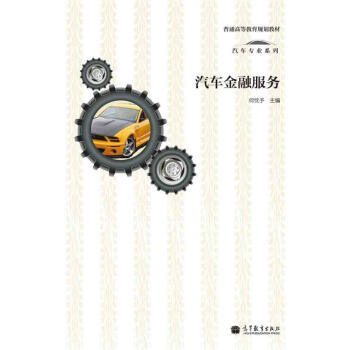
![普通高等教育“十一五”国家级规划教材:对外汉语教学实用语法(修订本)练习参考答案及要解 [Teaching Foreigners Practical Chinese Grammar Answers and Notes] pdf epub mobi 电子书 下载](https://pic.windowsfront.com/11090077/rBEHalBlCisIAAAAAAC4vYguu0gAABjUgBm5NoAALjV400.jpg)
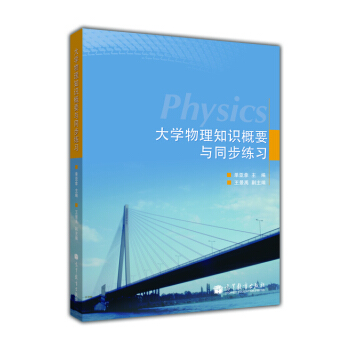
![高等学校现代统计学系列教材:属性数据分析 [Analysis of Categorical Data] pdf epub mobi 电子书 下载](https://pic.windowsfront.com/11284514/5652a6b6N6d7a4473.jpg)
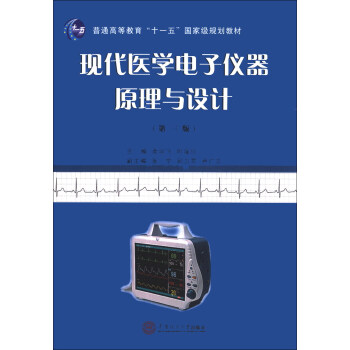
![竞赛数学教程(第3版)/高等学校教材 [A Course in Competitive Mathematics] pdf epub mobi 电子书 下载](https://pic.windowsfront.com/11323220/5652a6b7Nc9741694.jpg)

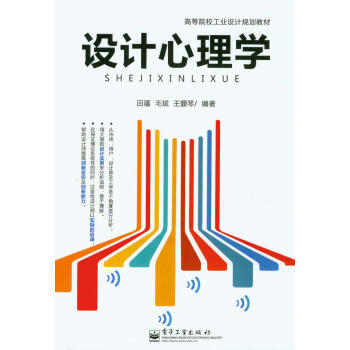



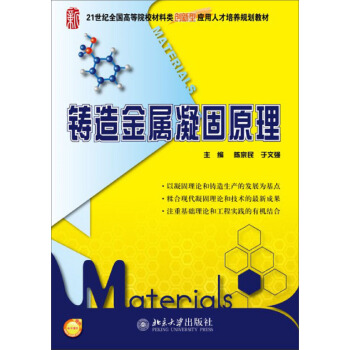


![先进机器人控制/中国科学院研究生院教材 [Advanced Robot Control] pdf epub mobi 电子书 下载](https://pic.windowsfront.com/11437102/57464966Ndbdb46a4.jpg)
